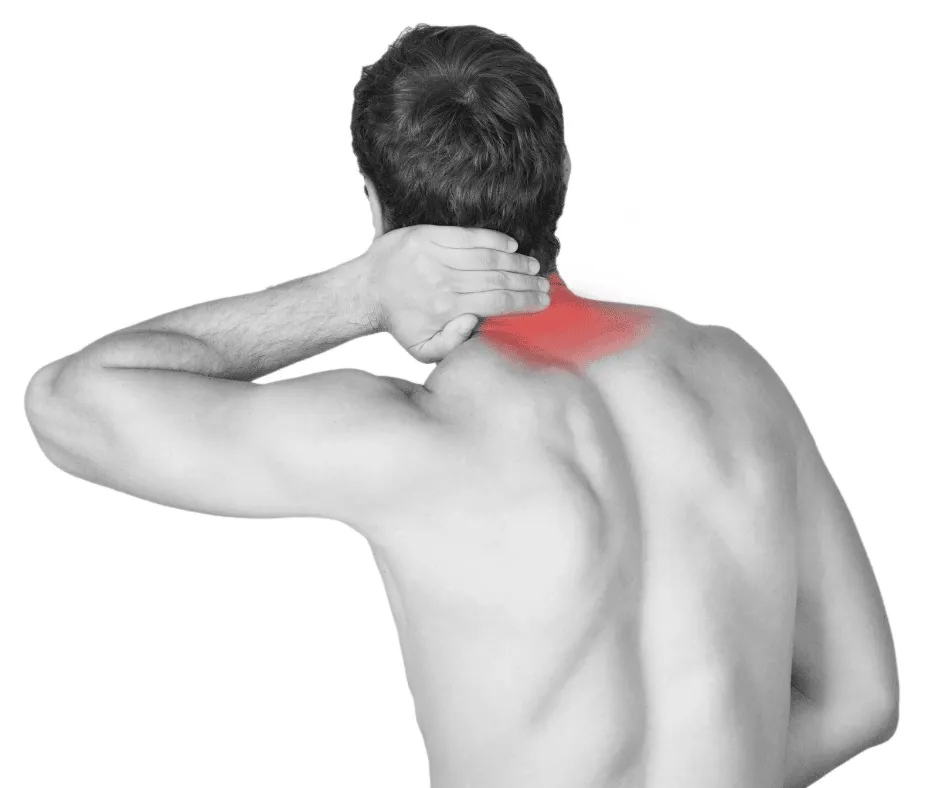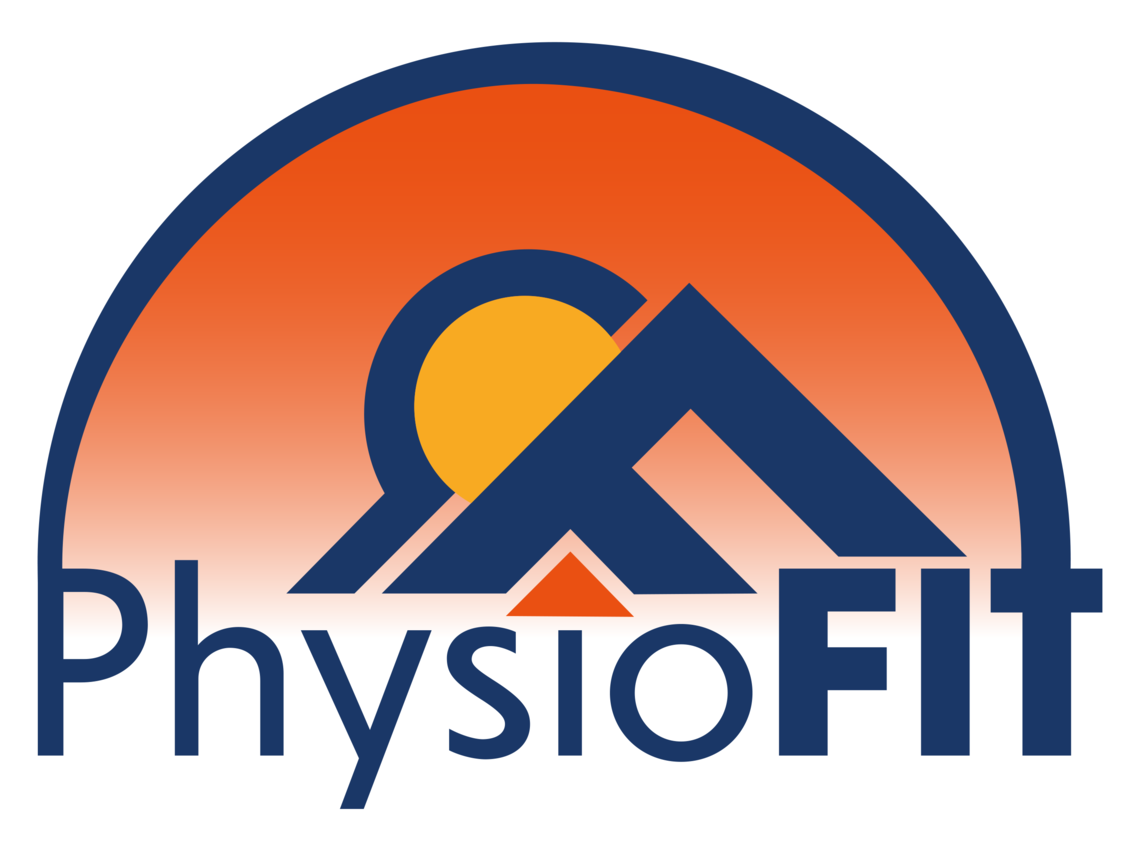Neck Pain Relief
Living Life Shouldn't Be Such a Pain in the Neck
Are you one among the millions experiencing "neck pain" and seeking relief? Neck pain is an everyday battle for roughly 10-20% of U.S. adults, leading to work absences, diminished life quality, and restricted physical activities. Consider us your guide, providing essential knowledge about neck pain and illustrating how we can assist you in restoring your well-being.
At PhysioFit, we are committed to delivering well-rounded neck pain treatments, expertly designed to align with every patient's specific condition and requirements. Our practice is rooted in a science-based, exercise-centric methodology of physical therapy, centered around individualized care plans for pain relief. Our vision transcends the mere alleviation of your neck discomfort; we strive to enhance your holistic health, diminish the chance of chronic or recurrent pain, and expedite your return to your routine activities.
What You Should Know
The most frequent injury resulting from car accidents is neck pain, accounting for nearly half, or 49%, of all vehicular injury cases.
Persistent neck pain may cause an array of complications, including depression, tension in relationships, anxiety, issues at work, hindrance in day-to-day tasks, and excessive tiredness.
Neck discomfort ranks third as a source of chronic pain.
A proper diagnosis of a neck problem involves a thorough evaluation from a professional.

The Most Common Causes of Neck Pain
Neck pain, a common complaint that can arise from various sources, often disturbs the delicate balance of daily life. Whether it's the natural aging process, physical strain, mental stress, traumatic injury, abnormal growths, or an underlying health condition, the origin of neck pain can be multifaceted. Understanding these potential causes is a crucial step towards effective treatment and relief.
Neck discomfort can be attributed to several factors:
Age-related Deterioration: Aging can lead to natural wear and tear of the cervical spine, leading to degenerative conditions like osteoarthritis or spinal stenosis, which can provoke neck pain. Persistent stress and repeated movements can weaken spinal disks, potentially causing a herniated disk or a pinched nerve.
Physical Exertion: Repetitive or strenuous activities can overstrain neck muscles, resulting in stiffness and pain. Factors like poor posture, weak abdominal muscles, and excess body weight can misalign the spine, contributing to neck discomfort. Long hours spent in front of a computer, straining the neck, is a common contributor to neck pain.
Psychological Stress: Stress-induced muscle tightening can lead to neck stiffness and pain. Many individuals may unconsciously tense their neck muscles during periods of stress or agitation, only realizing it when the neck begins to hurt.
Injury: Trauma can damage muscles, ligaments, disks, vertebral joints, and nerve roots in the spinal cord, causing neck pain. Whiplash, a common neck injury resulting from car accidents, often leads to neck discomfort.
Abnormal Growths: Tumors, cysts, and bone spurs can exert pressure on neck nerves, inducing pain.
Underlying Health Conditions: Certain health conditions, including meningitis, rheumatoid arthritis, and cancer, may present neck pain as a symptom.
If any of this information resonates with your current situation, we urge you to schedule an appointment with us immediately. Don't let hip pain diminish your life quality - allow us to help you embark on the path to relief today.
Strategies for Negating Neck Pain
Strategies can be implemented to mitigate neck discomfort related to muscle strain or tension. They are as follows:
Adopt Healthy Posture Habits: Arrange your devices such as computers and phones to prevent neck strain or slouching while using them. Ensure your shoulders are aligned, your back is straight while seated, and your neck isn't strained. Fine-tune your car seats for proper posture during transit.
Optimize Your Sleeping Position: Retain good posture even during sleep. Use a pillow for head support to align your head and neck with your body if you sleep on your side or back. For back sleepers, consider placing a pillow under your knees to lessen lower back pressure. Avoid stomach sleeping with a turned head.
Stay Mobile: Utilize exercises meant for neck pain relief to also prevent it. If your job requires prolonged sitting, incorporate occasional breaks for stretching and mobilizing, including neck muscles.
Avoid Shoulder-Borne Heavy Loads: Refrain from carrying substantial weights like book bags or suitcases on your shoulder. Opt for wheeled luggage or bags instead.
Strengthen Your Upper Back Extensor Muscles: Age-related weakening of the upper back is normal, causing the shoulders to stoop and the head to tilt forward. This posture puts extra strain on your neck and upper back.

Common Symptoms of Neck Pain
Experiencing headaches
Sensation of numbness or a tingling feeling, akin to 'pins and needles', in your shoulders or arms.
Inability to rotate the neck or incline the head
Rigidity in the neck, shoulder, and upper back regions
A radiating pain extending from the neck down to the shoulders or arms
An intense sensation of stabbing or burning
A continuous, nagging discomfort
Remember, if you resonate with any of the symptoms or conditions mentioned, we highly recommend making an appointment with us for a thorough evaluation and personalized treatment plan.
Please Note: The information provided on our website is intended for general education and is not a substitute for professional medical advice. Each individual's situation and body is different. Therefore, what may work for one person may not work for another. We care about your well-being and advise you to reach out to us to discuss your specific needs before implementing any advice from our website.
Your Source for All Things Physical Therapy in Bend Oregon
The PhysioBlog

Top 5 Mistakes After Knee Replacement
Top 5 Mistakes After Knee Replacement
Please Note: The information provided on our website is intended for general education and is not a substitute for professional medical advice. Each individual's situation and body are different. Therefore, what may work for one person may not work for another. We care about your well-being and advise you to reach out to us to discuss your specific needs before implementing any advice from our website. If you’d like to explore this more or would like to schedule a time with a physical therapist in Bend Oregon, contact us at PhysioFITBend.com
Introduction
Navigating Knee Replacement Recovery in Bend, Oregon
In Bend, Oregon, knee replacement surgery is more than a medical procedure; it's a journey towards a pain-free, active lifestyle. At PhysioFIT, we understand this journey intimately. While knee replacement can be life-changing, the path to recovery is critical. Missteps can delay healing and impact outcomes. This article explores the top five mistakes to avoid after your surgery, ensuring your recovery is as effective and smooth as possible.
Mistake 1: Overlooking Post-Surgery Lifestyle Adjustments
Preparing Your Home and Life for Recovery
Adapting your living space for post-surgery recovery is crucial. Many patients underestimate the limitations they'll face immediately after surgery. At PhysioFIT, we encourage patients to consider home modifications, such as arranging a ground-floor living space and preparing easy-access meal options. We provide personalized consultations to help our Bend community prepare their homes and lives for the recovery phase.
Mistake 2: Inconsistent Pain Management
Effective Pain Control: A Cornerstone of Recovery
Managing pain is not just about comfort; it's about enabling active participation in rehabilitation. Irregular use of prescribed pain medication can lead to a debilitating cycle of discomfort and hindered mobility. At PhysioFIT, our pain management strategies are tailored to each individual, ensuring a balance between relief and recovery.
Mistake 3: Neglecting Physical Therapy and Exercise
The Role of Rehabilitation in Knee Recovery
Physical therapy is the bedrock of successful knee replacement recovery. Skipping sessions or not fully committing to the exercise regimen can result in stiffness and reduced mobility. Our PhysioFIT experts design customized therapy plans, keeping in mind the unique lifestyles of our Bend clients, ensuring that each step in the therapy process is both manageable and effective.

Mistake 4: Rushing Back into Activities
Finding the Right Pace for Activity Post-Surgery
The eagerness to return to normal life can lead to overexertion, causing setbacks in recovery. Understanding the fine line between necessary activity and overdoing it is essential. Our PhysioFIT team guides patients in gradually resuming activities, balancing rest and movement to foster optimal healing.
Mistake 5: Skipping Pre-Surgery Conditioning
The Impact of Prehab on Recovery Outcomes
Pre-surgery conditioning, or prehab, plays a significant role in enhancing post-surgery recovery. Building strength and flexibility prior to surgery can lead to better post-operative outcomes. Our prehab programs at PhysioFIT are designed to prepare your body for the demands of surgery and speed up the recovery process.
Conclusion
Join PhysioFIT for a Successful Knee Replacement Journey
Avoiding these five common mistakes can significantly influence your recovery after a knee replacement. Remember, each decision and action during your recovery can greatly impact the overall success of your surgery. If you're in Bend, Oregon, and preparing for or recovering from knee replacement surgery, PhysioFIT is here to guide you every step of the way. Visit PhysioFIT or call us to schedule a consultation. Let's work together towards a successful recovery and a return to the active, pain-free life you love.
Frequently Asked Questions
Navigating Common Concerns After Knee Replacement
What is the most commonly reported problem after knee replacement surgery?
The most commonly reported issue is stiffness or limited range of motion in the knee. Regular physical therapy and exercises are crucial to prevent and address this problem.
What can you never do after knee replacement?
High-impact activities such as running, jumping, or contact sports are generally discouraged after a knee replacement as they can put excessive stress on the new joint.
What are the red flags after total knee replacement?
Red flags include severe pain that doesn’t improve with medication, significant swelling, redness around the surgery site, fever, or any signs of infection. Any of these symptoms should prompt immediate medical consultation.
What is the maximum bend after knee replacement?
The goal is typically to achieve a range of motion close to 115 degrees, which is sufficient for most daily activities. However, the maximum bend can vary based on individual factors and the type of replacement used.
Please Note: It's important to note that any exercises or techniques that are shared should be performed under the guidance of a qualified physical therapy expert to ensure correct technique and to prevent injuries. A physical therapist can provide a customized exercise program based on the individual's fitness level, goals, and any existing injuries or conditions. If you’d like to explore this more or would like to schedule a time with a physical therapist in Bend Oregon, contact us at PhysioFITBend.com
Copyright PhysioFIT 2023 . All rights reserved


